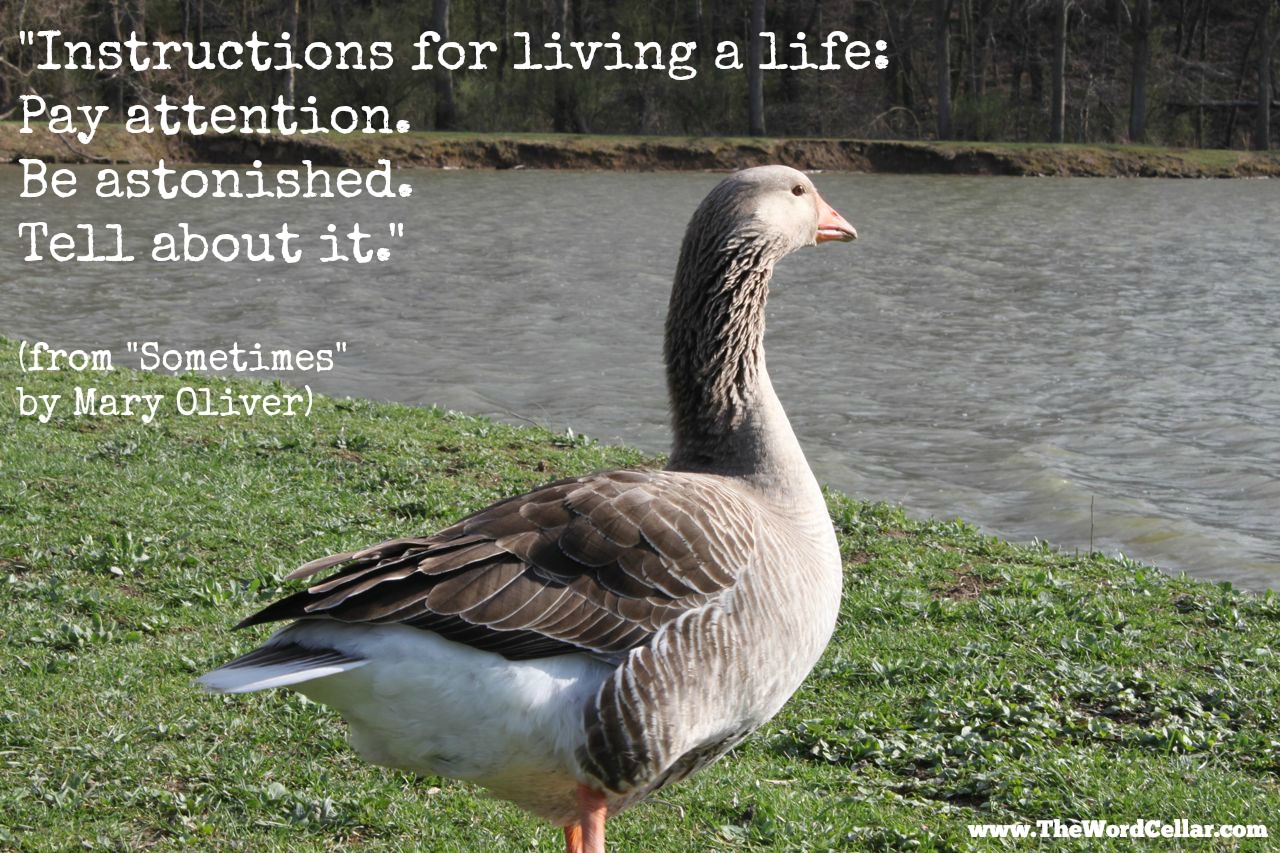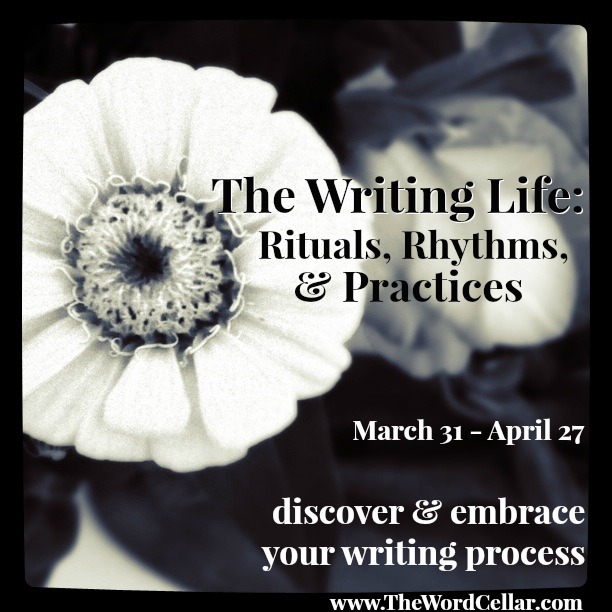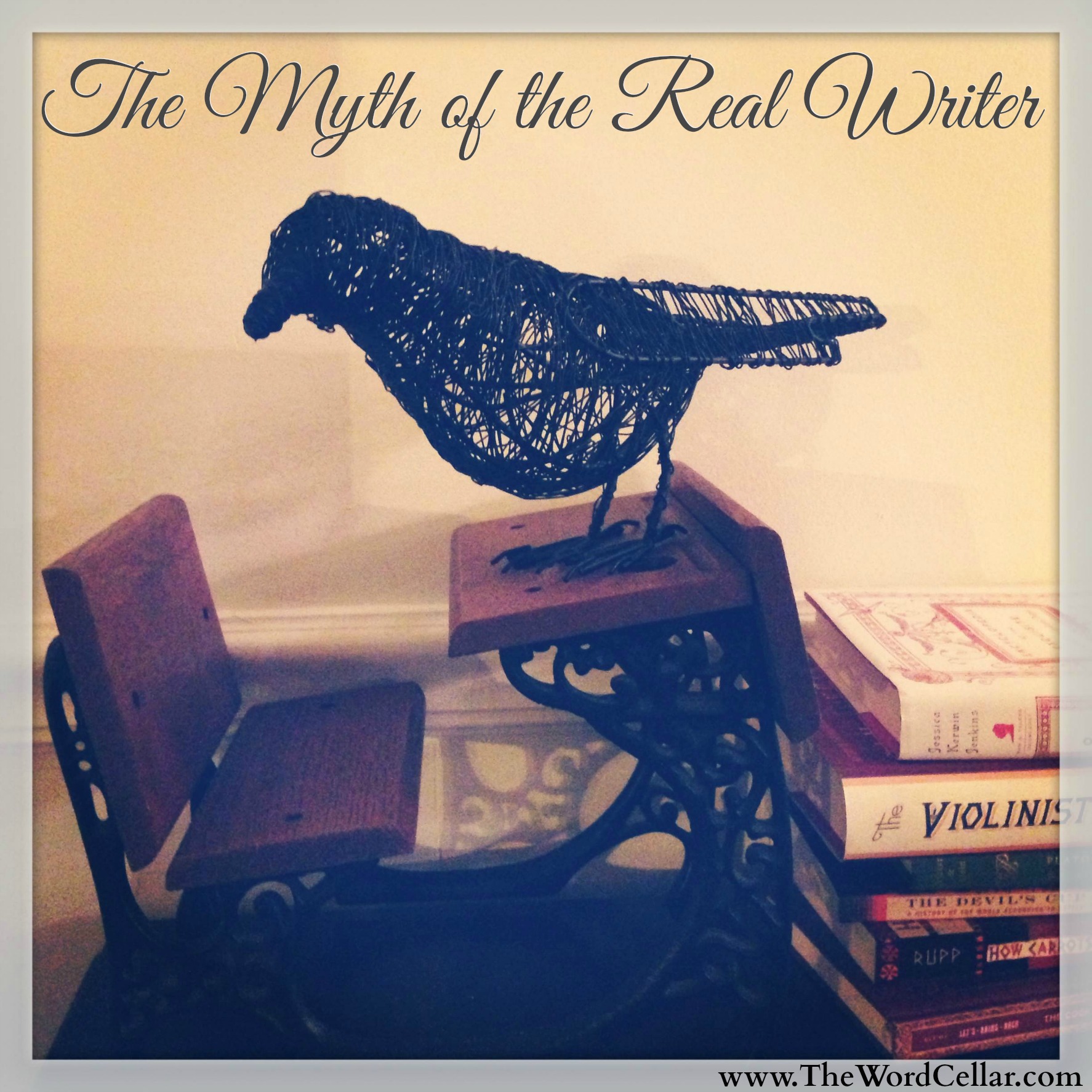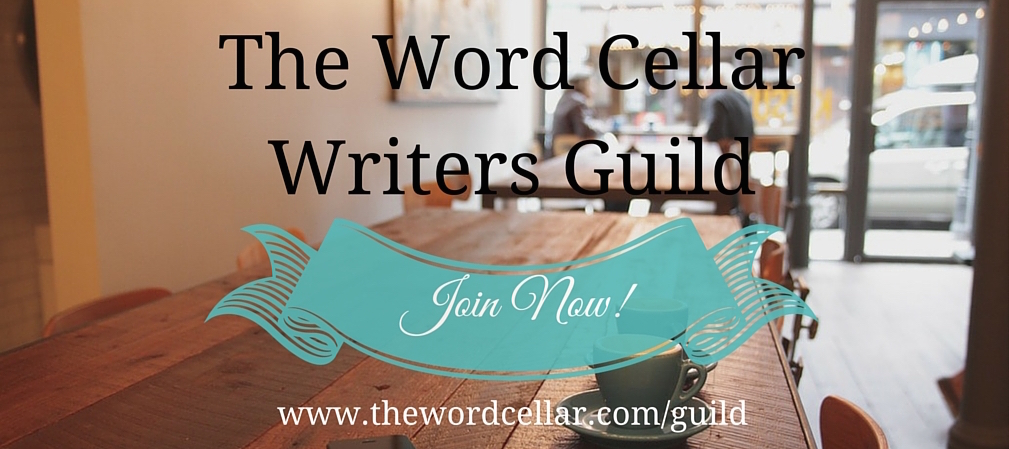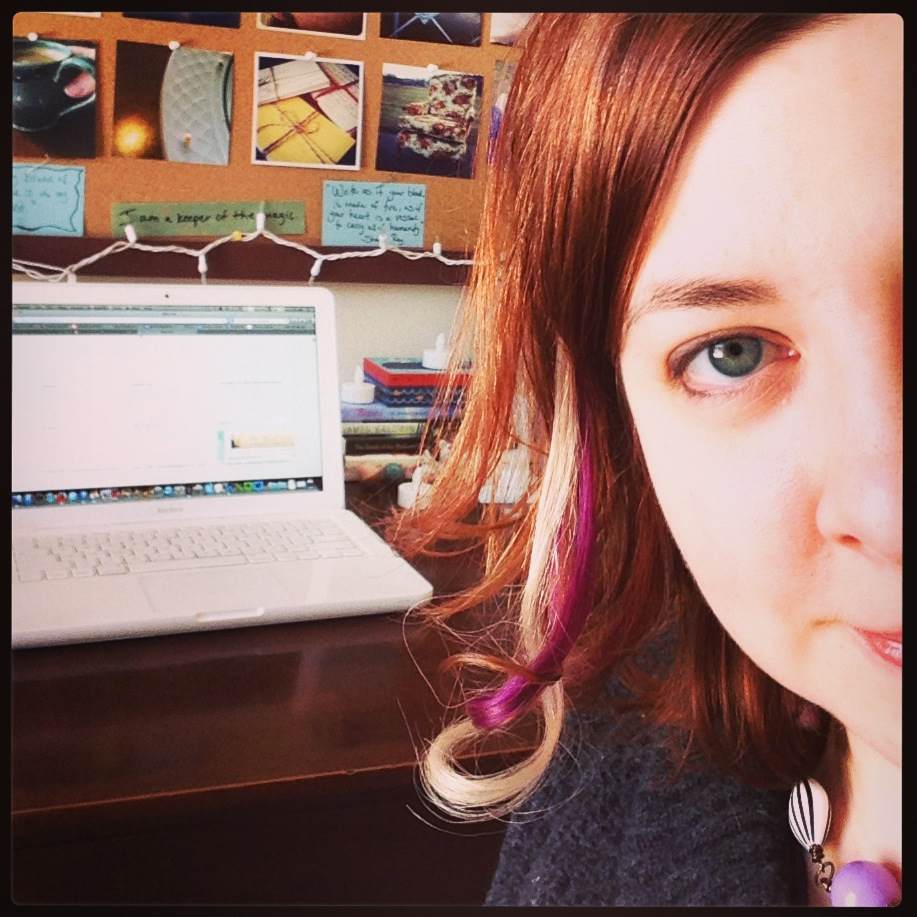
I've been thinking and writing a lot about the creative process lately, partly in relation to the newest online class that I'll be teaching in a few weeks, and partly because I'm always trying to hone in on my own best process. It's a topic that comes up often with my mentoring clients and students. It comes up equally often with my writer friends and colleagues. And it comes up with well-known published authors. The creative process is endlessly fascinating, and creating a sustainable writing practice is something that interests (or plagues) writers at all levels.
All of this has been on my mind, so it was especially groovy that Jeanne Gassman, a writer colleague of mine, asked me to be part of the My Writing Process Blog Tour. The tour was started by author Diane Lefer on her blog. Diane invited several writers to answer a series of questions about their process, and those writers then invited several more, and so on. (update 3/19: Turns out that Diane isn't the originator of the tour. That was my mistake. But you should still check her out!) I'm glad that Jeanne invited me. I met Jeanne during graduate school at Vermont College of Fine Arts, and she was in my very first workshop there. Jeanne is a wonderful fiction and nonfiction writer who lives in Arizona, and her historical novel, Blood of a Stone, is forthcoming from Tuscany Press in the summer of 2014. She's a dedicated writer and friendly, supportive presence in my extended writing circle. Be sure to check out her Writing Process answers on her blog, Jeanne's Writing Desk, where she regularly posts writing opportunities and calls for submissions.
My answers to the "blog tour" questions are below, and at the end of this post I'll introduce you to two other writers who will be joining the My Writing Process Blog Tour with their answers next week.
1) What are you working on?
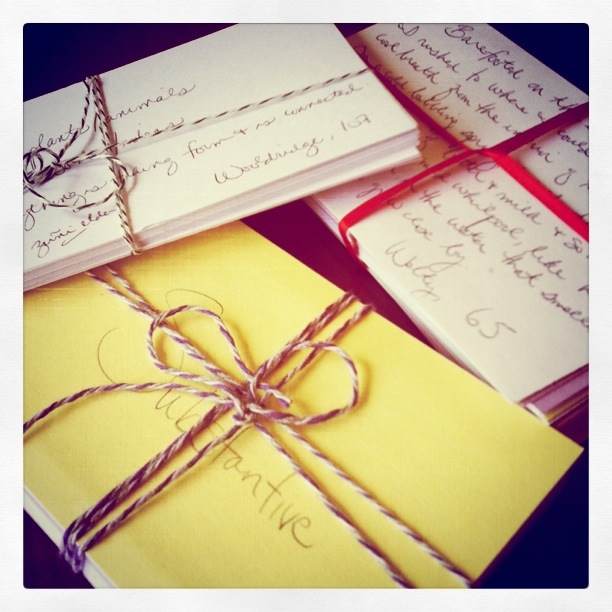 A few months ago I realized that I have five books waiting for me to write them. Five! I fear that I sound hoity-toity when I admit this, but please understand that I say it with a dizzying blend of excitement and fear. I've been working on one of these books for the last several years, and it's slow going. Knowing that there are four more waiting for me to get to them makes me feel frantic. This book that I've been working on is a collection of meditative and lyric essays called For All We Learned, The Sea. The collection explores spirituality, landscape, and the longing for home in all its many (internal and external) forms.
A few months ago I realized that I have five books waiting for me to write them. Five! I fear that I sound hoity-toity when I admit this, but please understand that I say it with a dizzying blend of excitement and fear. I've been working on one of these books for the last several years, and it's slow going. Knowing that there are four more waiting for me to get to them makes me feel frantic. This book that I've been working on is a collection of meditative and lyric essays called For All We Learned, The Sea. The collection explores spirituality, landscape, and the longing for home in all its many (internal and external) forms.
I'm also toying with two book-length narrative memoirs, including one about the year I spent living and working in a London YMCA. Several years ago, a novel idea came to me just as I'd started my graduate program for nonfiction. What timing! I sat that book on a mental shelf and promised I'd be back for it. Every so often I look at it and wink. It's been patient, but lately it's been eyeing me up, and I know that the time to pay attention to it is coming soon. In addition to all that, I also have the characters for a story for either kids or young adults banging around in my head. It's getting rather busy in there, but I prefer that racket to the alternative: the chilling silence of having no ideas.
In my "spare" time, I write other random essays, plus the occasional poem that I squirrel away and don't show anyone.
2) How does your work differ from others of its genre?
 To answer this question, I'll stick with how I approach writing essays and literary nonfiction.
To answer this question, I'll stick with how I approach writing essays and literary nonfiction.
First off, the subject matter of my essays is different than a lot of what you might find in mainstream essays. A few months ago, I gave a reading from one of the essays in For All We Learned, The Sea. In that essay -- indeed, throughout the whole collection -- I question the nature of God and the nature of belief. After my reading, another writer told me that he enjoyed the piece. And then he said, "You don't find many people writing about God these days." I wasn't sure how to respond, but he had a point. What he didn't say, but what I think he also meant, was that you don't find a lot of people writing about God in a non-judgemental, non-proselytizing, or non-saccharine way. A lot of "God writing" is angry or vague or schlocky or naive. I don't write about God in order to convert anyone to anything. I'm simply trying to make sense of a spiritual worldview that has changed drastically several times throughout my life. It's not that this is never done, but I guess it's less common than some other subject matter.
Second, my writing style is different than a lot of personal writing (essays, memoir, etc.). Most of the essays in my collection are not straight narrative. I joke that I write essays in which nothing happens. These pieces are often non-chronological and non-narrative. I think of them as the written equivalents of Polaroids, snippets or vignettes that capture a moment in time, a mood, a thought, a feeling, a question. I also love to braid together disparate elements, to play with structure and form, and to make unexpected connections.
Third, I think my attention to language is a bit unusual compared to some other literary nonfiction writers. Since I write in a more meditative or lyric style, I'm more concerned with the rhythm and sound of the language than some (though not all) narrative nonfiction writers are. Sometimes I wonder if I'm actually a poet who writes paragraphs. I'm as interested in how words sound and taste as I am in what they mean.
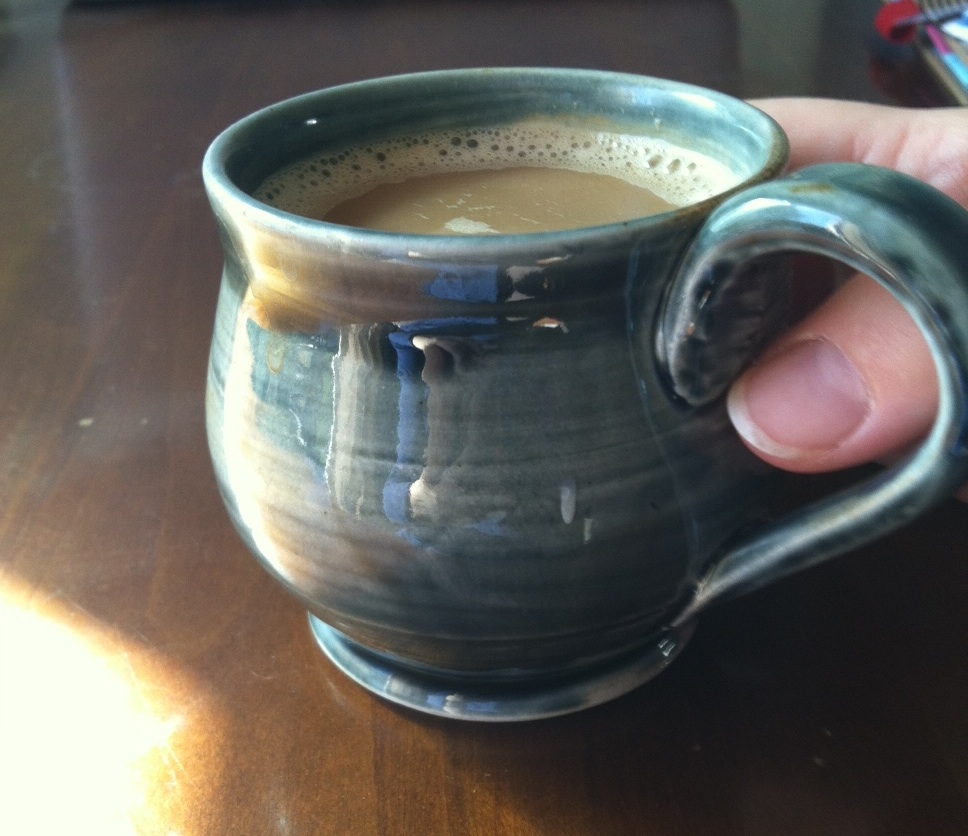 3) Why do you write what you do?
3) Why do you write what you do?
The existential answer:
I write what I write because that's what comes to me. What else can I do?
The practical answer:
I write what I write because that's what comes to me. What else can I do?
4) What is your writing process?
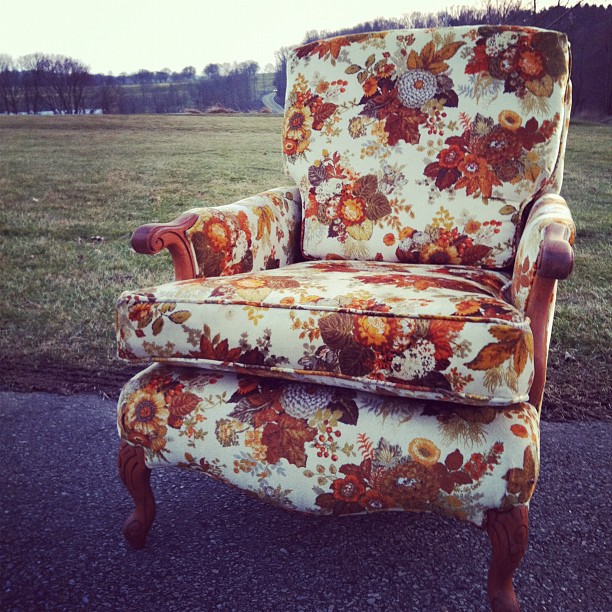 I have terrible writing habits. There, I've said it. I'm not nearly as consistent as I'd like to be, so this is something that I'm working on. Always. Even though I know that I'm not going to produce a masterpiece every time I sit down to write, my fear of writing badly (a.k.a. perfectionism, a.k.a. caring deeply about the work) too often intimidates me and keeps me from writing. I've written before about how I've had to learn to write badly. In other words, I have to practice staying committed to the writing even when it's going poorly.
I have terrible writing habits. There, I've said it. I'm not nearly as consistent as I'd like to be, so this is something that I'm working on. Always. Even though I know that I'm not going to produce a masterpiece every time I sit down to write, my fear of writing badly (a.k.a. perfectionism, a.k.a. caring deeply about the work) too often intimidates me and keeps me from writing. I've written before about how I've had to learn to write badly. In other words, I have to practice staying committed to the writing even when it's going poorly.
While I was away at a month-long writing retreat this winter, I had some pretty major epiphanies about how I write the kinds of essays in my book manuscript. It's a slow and languorous process that requires a lot of time and white space to let the essays' elements coalesce. This realization has helped me to see that I need to be working on several things in any given month, be that multiple essays or essays and something else entirely (like the novel). I don't know what will happen if (when?) I start to seriously write either a novel or narrative memoir. I wonder if the narrative nature of those works will become all-consuming in a different way than the meditative/lyric essays do. Perhaps more driving and more immediate with less downtime needed in-between chapters. We'll see.
Although I need a lot of mental white space and time to think (consciously or subconsciously) about the essays I write, I also tend to need to write a lot before I figure out where I'm going, what I'm trying to say, and how it all works together. I'm more of an associative than a linear thinker, which is probably why I so often tend toward non-chronological and non-narrative writing. This mode shows up in my writing process, too. I often have to go a long way out of my way to find the thing I'm trying to write. I've blogged about this before, about how writing is a process of discovery for me. Some writers figure out the whole story in their heads before they start to put words together on the page. For a long time I thought this was how "real writers" operated, and I was worried that I seemed to be much messier than that. I eventually realized that there's no "right" way to go about writing, and that I happen to be a "horizontal" or "extraverted" writer in that I have to put a lot out there on the page in order to find my way. (The opposite is the "vertical" or "introverted" writer who figures it out in her head first and then starts to physically write.)
When I'm stuck in the writing process, I tend to try free-writing about the topic, to make lists or associative mindmaps of ideas, or to put ideas on index cards so I can physically move them around. I'll also switch from the keyboard to pen and paper if I'm feeling stuck. Sometimes changing something about the physical act of writing helps to unlock things in my head.
Oh, and I revise a lot. I like revising and rewriting. That part of the process is often much more enjoyable (and less terrifying) to me than the blank page or the confusion of writing a first draft.
I tend to write best after dark. Sometimes way after dark. (It's 3:30 a.m. as I write this.) I like the quiet, darkness, and solitude of night time writing. The thought of getting up at dawn (to write or to do anything else for that matter) makes me whimper and cry. One big problem with this kind of writing schedule is that it pushes writing to be the last thing of the day, which often means that it's the thing that I skip when I'm too busy, too distracted, or too tired. While I was away in Vermont for my writing residency in January, my most productive time of day turned out to be late afternoon, which was unexpected. Since I've been back, I haven't kept much of a consistent schedule, so I'm not sure what time of day will end up working best for me when I settle into some sort of regular rhythm.
** ** **
Next up on the My Writing Process Blog Tour:
Next week, please check out the following writers on their blogs as they discuss their creative process.
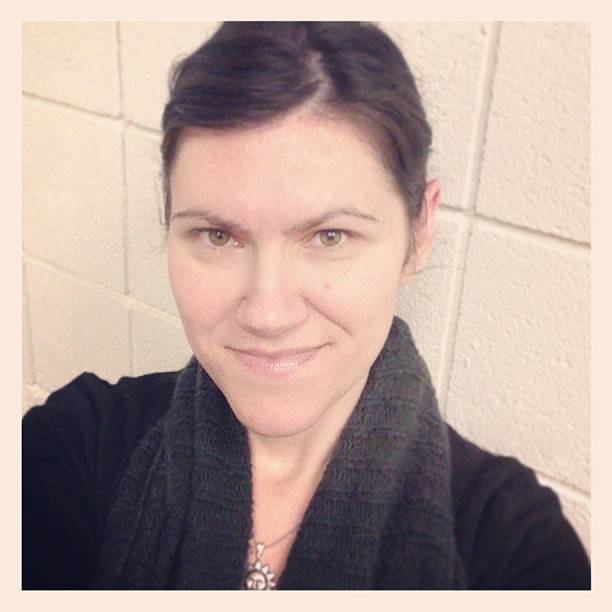 Karen Dietrich is the author of a memoir, The Girl Factory (Globe Pequot, 2013), as well as three chapbooks: Understory (dancing girl press, 2013), Girl Years (Matter Press, 2012), and Anchor Glass (Finishing Line Press, 2011). Her writing has appeared in Specter, Bellingham Review, PANK, and elsewhere. You can read her blog here.
Karen Dietrich is the author of a memoir, The Girl Factory (Globe Pequot, 2013), as well as three chapbooks: Understory (dancing girl press, 2013), Girl Years (Matter Press, 2012), and Anchor Glass (Finishing Line Press, 2011). Her writing has appeared in Specter, Bellingham Review, PANK, and elsewhere. You can read her blog here.
I met Karen a few years ago and am delighted to know another writer who lives in my town. She's been featured on this site before, as a guest contributor for the Loquacious series. I recommend her book The Girl Factory to just about everyone. It's a memoir written by a poet, which means it's subtle and beautiful and kind of kick-ass. Seriously, you should read it.
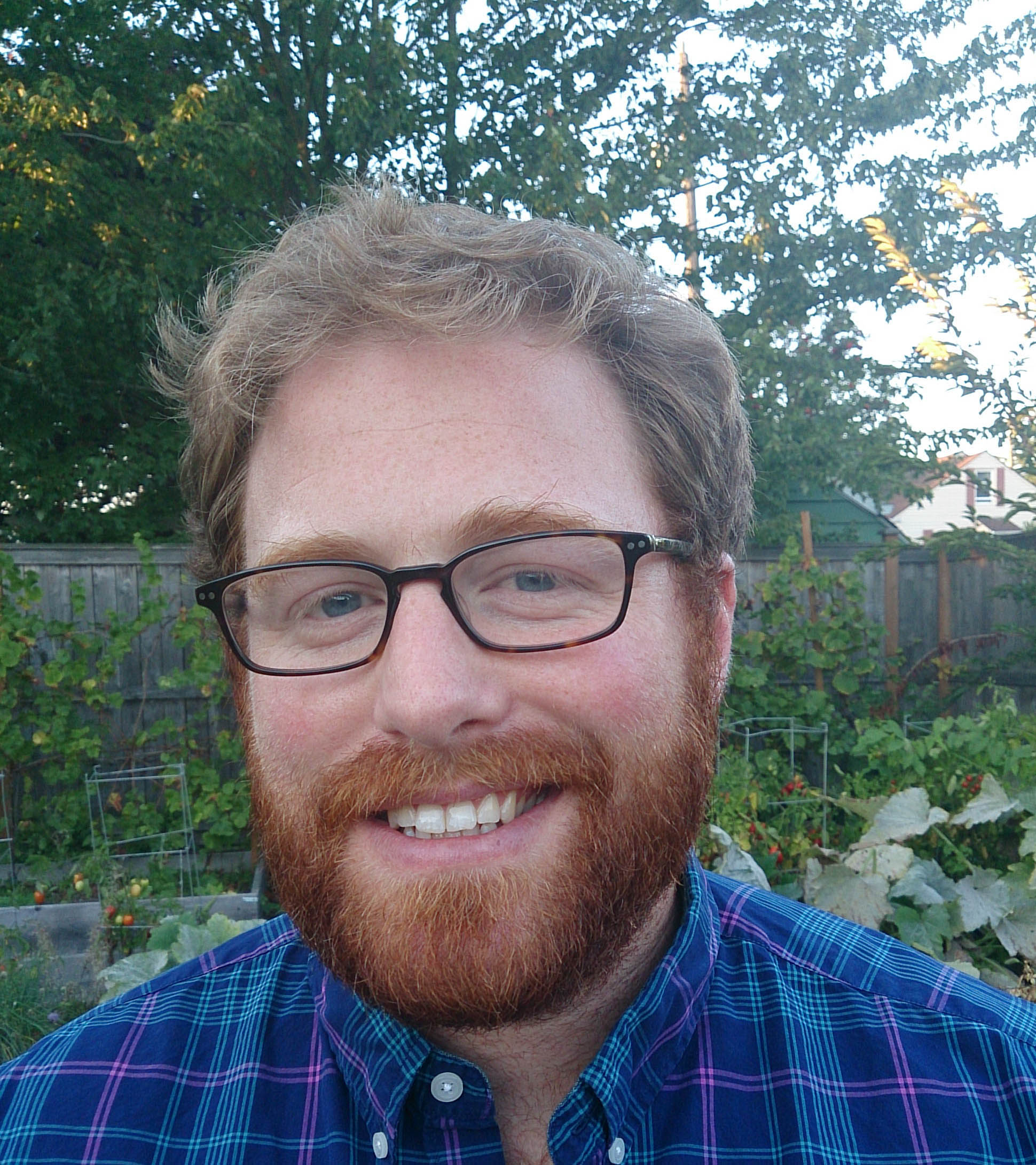 Ross McMeekin's fiction appears in Shenandoah, Passages North, Folio, PANK, Hobart, Tin House Flash Fiction Fridays, and elsewhere. He edits the literary journal Spartan. He’' the recipient of a 2013-14 Made at Hugo House Fellowship and lives in Seattle. You can find his blog at www.rossmcmeekin.com.
Ross McMeekin's fiction appears in Shenandoah, Passages North, Folio, PANK, Hobart, Tin House Flash Fiction Fridays, and elsewhere. He edits the literary journal Spartan. He’' the recipient of a 2013-14 Made at Hugo House Fellowship and lives in Seattle. You can find his blog at www.rossmcmeekin.com.
I met Ross during grad school, and in addition to being an amazing fiction writer, he's a jovial guy with a big heart. His flash fiction piece, "What Fills a Balloon" (published on Storyglossia), is one of my favorite short stories ever.
** ** **
Now you. Want to share anything about your writing process? Tell us in the comments.
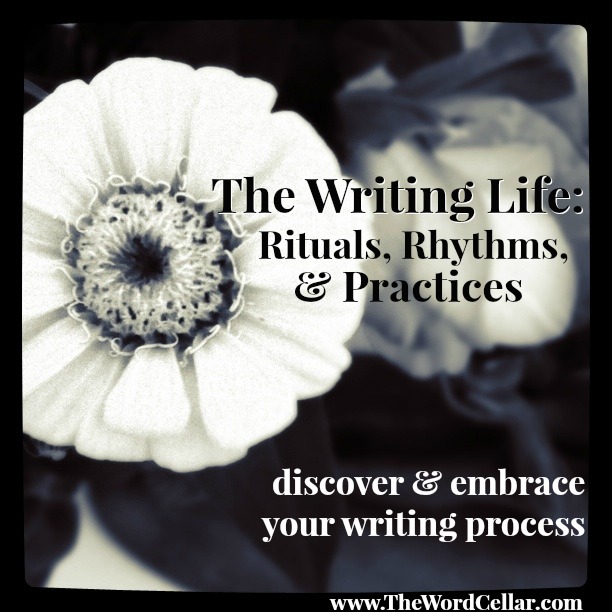 And if you're interested in exploring your creative process, please consider joining me for The Writing Life: Rituals, Rhythms, & Practices, March 31 - April 27.
And if you're interested in exploring your creative process, please consider joining me for The Writing Life: Rituals, Rhythms, & Practices, March 31 - April 27.
In this online class you'll unravel the misconceptions and myths of what being a "Real Writer" looks like. You'll tap into your creative energy and unleash it in a sustainable way. You'll learn techniques for transforming your perceived weaknesses into the strengths of your writing life. You'll figure out what it will take for you to write more. And you'll probably start to have a lot more fun while writing!
Full details and registration are available here.
 Tuesday, May 13, 2014 at 4:58PM
Tuesday, May 13, 2014 at 4:58PM 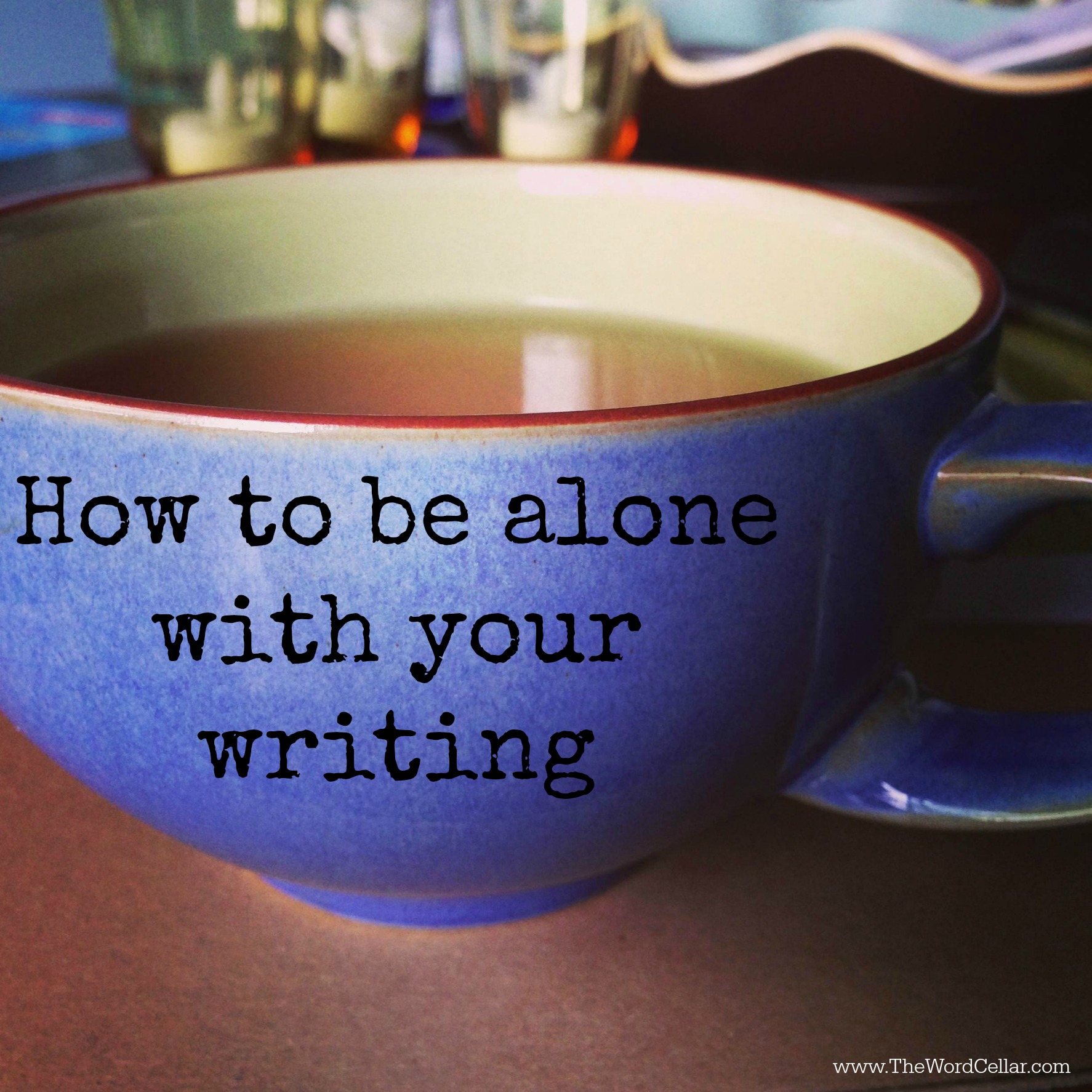
 writing,
writing,  writing life,
writing life,  writing tips
writing tips 

